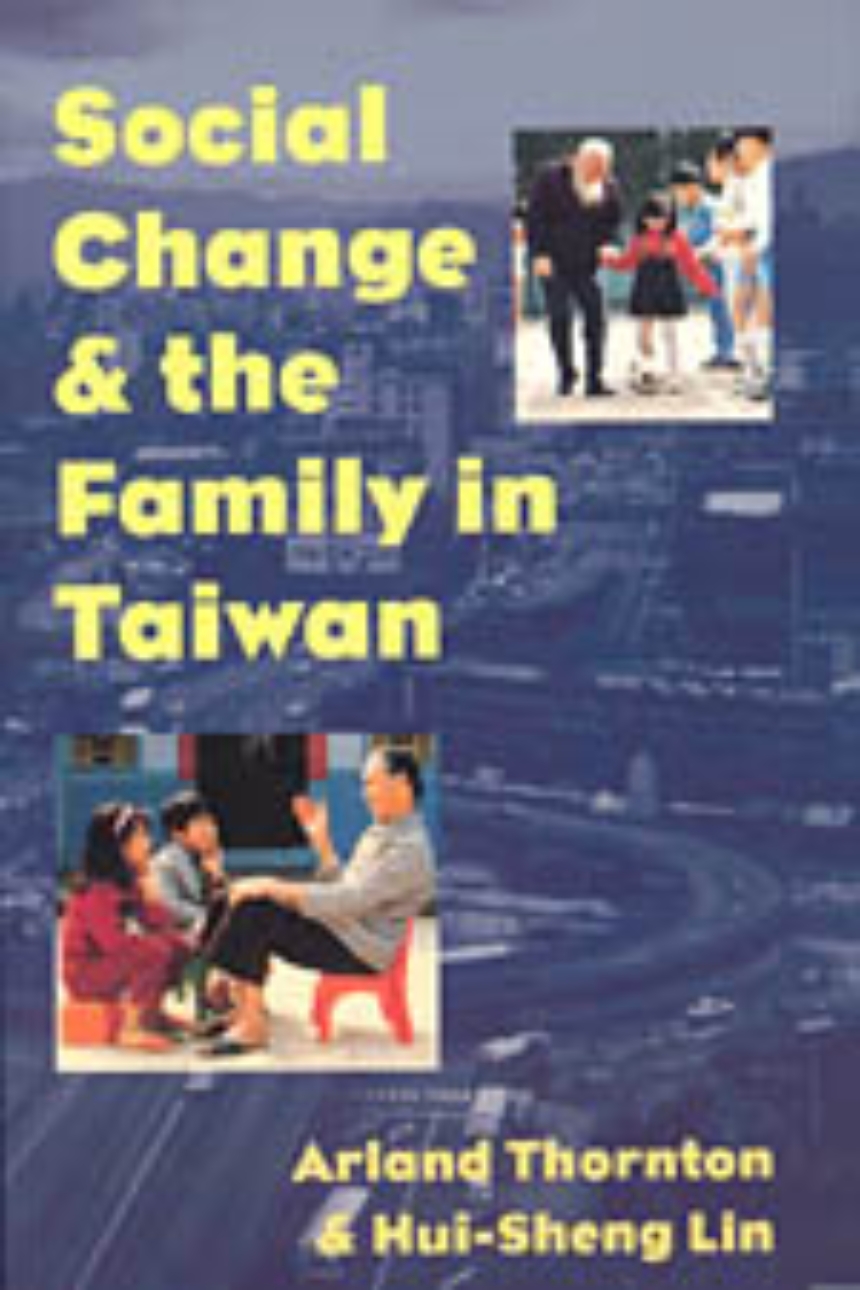Social Change and the Family in Taiwan
Until the 1940s, social life in Taiwan was generally organized through the family—marriages were arranged by parents, for example, and senior males held authority. In the following years, as Taiwan evolved rapidly from an agrarian to an industrialized society, individual decisions became less dependent on the family and more influenced by outside forces. Social Change and the Family in Taiwan provides an in-depth analysis of the complex changes in family relations in a society undergoing revolutionary social and economic transformation.
This interdisciplinary study explores the patterns and causes of change in education, work, income, leisure time, marriage, living arrangements, and interactions among extended kin. Theoretical chapters enunciate a theory of family and social change centered on the life course and modes of social organization. Other chapters look at the shift from arranged marriages toward love matches, as well as changes in dating practices, premarital sex, fertility, and divorce.
Contributions to the book are made by Jui-Shan Chang, Ming-Cheng Chang, Deborah S. Freedman, Ronald Freedman, Thomas E. Fricke, Albert Hermalin, Mei-Lin Lee, Paul K. C. Liu, Hui-Sheng Lin, Te-Hsiung Sun, Arland Thornton, Maxine Weinstein, and Li-Shou Yang.
This interdisciplinary study explores the patterns and causes of change in education, work, income, leisure time, marriage, living arrangements, and interactions among extended kin. Theoretical chapters enunciate a theory of family and social change centered on the life course and modes of social organization. Other chapters look at the shift from arranged marriages toward love matches, as well as changes in dating practices, premarital sex, fertility, and divorce.
Contributions to the book are made by Jui-Shan Chang, Ming-Cheng Chang, Deborah S. Freedman, Ronald Freedman, Thomas E. Fricke, Albert Hermalin, Mei-Lin Lee, Paul K. C. Liu, Hui-Sheng Lin, Te-Hsiung Sun, Arland Thornton, Maxine Weinstein, and Li-Shou Yang.
466 pages | 12 line drawings, 113 tables | 6 x 9 | © 1994
Population and Development Series
Economics and Business: Economics--Development, Growth, Planning
Sociology: General Sociology
Table of Contents
Preface
1: Introduction
2: Historical and Ethnographical Perspectives on the Chinese Family
3: The Social and Economic Transformation of Taiwan
4: Theoretical Mechanisms of Family Change
5: The Changing Organization of Individual Activities
6: From Arranged Marriage toward Love Match
7: Determinants of Historical Changes in Marital Arrangements, Dating, and Premarital Sexual Intimacy and Pregnancy
8: Trends in the Timing and Prevalence of Marriage
9: Determinants of Historical Changes in Marital Timing
10: Trends in Marital Dissolution
11: The Fertility Transition in Taiwan
12: Co-Residence and Other Ties Linking Couples and Their Parents
13: Determinants of Co-Residence in Extended Households
14: Weakening the Linkage between the Ancestors, the Living, and Future Generations
15: Continuity and Change
Appendix A: Sources of Data
Appendix B: Truncation Bias
References
List of Contributors
Index
1: Introduction
2: Historical and Ethnographical Perspectives on the Chinese Family
3: The Social and Economic Transformation of Taiwan
4: Theoretical Mechanisms of Family Change
5: The Changing Organization of Individual Activities
6: From Arranged Marriage toward Love Match
7: Determinants of Historical Changes in Marital Arrangements, Dating, and Premarital Sexual Intimacy and Pregnancy
8: Trends in the Timing and Prevalence of Marriage
9: Determinants of Historical Changes in Marital Timing
10: Trends in Marital Dissolution
11: The Fertility Transition in Taiwan
12: Co-Residence and Other Ties Linking Couples and Their Parents
13: Determinants of Co-Residence in Extended Households
14: Weakening the Linkage between the Ancestors, the Living, and Future Generations
15: Continuity and Change
Appendix A: Sources of Data
Appendix B: Truncation Bias
References
List of Contributors
Index
Awards
American Sociological Association: Otis Dudley Duncan Award
Won
ASA Family Section: William J. Goode Distinguished Book Award
Won
